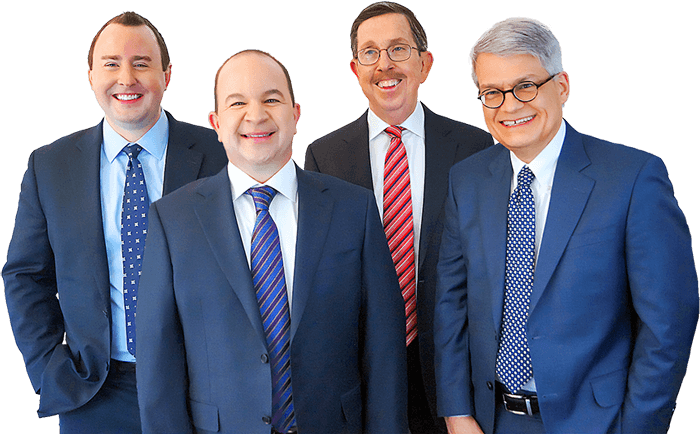Personal Injury Trial Lawyers With A History Of Success
An injury can occur when you least expect it and change your life and the lives of your family members forever. When faced with such a terrible situation, you can turn to our experienced personal injury lawyers at Tremont Sheldon P.C. in Bridgeport to obtain help and make sure you have the means to put your life back together.
We provide skilled representation for people who have been harmed by negligent individuals, corporations, institutions and other facilities. Learn how their dedication to obtaining successful case results has helped injury victims.
Types Of Personal Injury Claims
A personal injury claim can stem from a wide range and variety of accident situations, including:
- Traffic collisions and motor vehicle accidents that cause injuries
- Slip-and-fall accidents that result in injuries
- Dog bites
- Medical professional mistakes that lead to complications, more surgeries or death
- The sexual abuse of a child
- If someone you love was killed because of the negligence or wrongful actions of another, you may be able to file a personal injury claim on their behalf in the form of a wrongful death lawsuit.
An injured person must be able to show that the harm, damages and losses were caused by someone else’s carelessness or wrongdoing in order to file a claim. Injuries can be mental or emotional in nature in addition to the physical injuries that people suffer.
What Is Your Personal Injury Case Worth?
Many of our clients ask us how much compensation they should expect from a personal injury case. There are a lot of variables that must be considered before valuing a case.
Our lawyers at Tremont Sheldon P.C. look at economic damages, such as medical expenses, property damage and lost wages that might occur because of a personal injury. We also consider noneconomic damages when calculating compensation, such as pain and suffering, emotional distress and loss of enjoyment. In some cases, when the defendant’s actions were intentional or particularly reckless and indifferent to the safety of others, the court may also award punitive damages. These are designed solely to punish the defendant for their bad behavior.
Will You Have To Go To Court To Settle Your Claim?
Most personal injury claims are eventually settled through negotiations. Both sides may consider that preferable to the time and expense of a trial. A negotiated settlement, when fair, can be perfectly acceptable.
However, when the insurance company does not want to be reasonable with their offers or there are disputes over liability, litigation is always possible. At Tremont Sheldon P.C., we know how to protect our clients’ interests both at the negotiation table and at trial.
What Evidence Do You Need To Win A Personal Injury Claim?
Many of our personal injury claims have been successful with the help of strong evidence, such as accident and medical reports, video or photographic documentation, witness testimonies and expert opinions. This evidence can prove that an injury was the result of an accident. Our lawyers gather the necessary information to build a personal injury case.
How Do Personal Injury Attorneys Get Paid?
How attorneys get paid in personal injury cases in Connecticut is dictated by state law. Under Sec. 52-251c, attorney fees in personal injury cases are paid on a contingency fee basis. This means the fee is paid at the end of the case and is calculated on the amount of the final settlement or judgment. We discuss our fees with clients before taking on a case. There are no fees unless we recover compensation for you. More details about how this contingency fee works can be found in our FAQ section below.
Injured? We Are Here to Help.
If you have been injured, please do not hesitate to contact our attorneys for a free consultation. They have extensive experience handling these claims and will examine your individual circumstances and make a judgment about whether you have a personal injury claim. Arrange a free consultation by calling 203-212-9075 or contacting us online.

